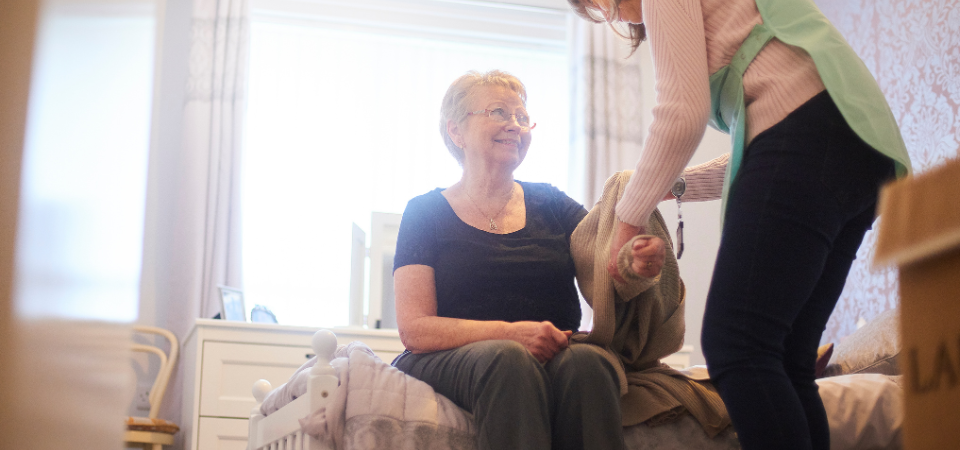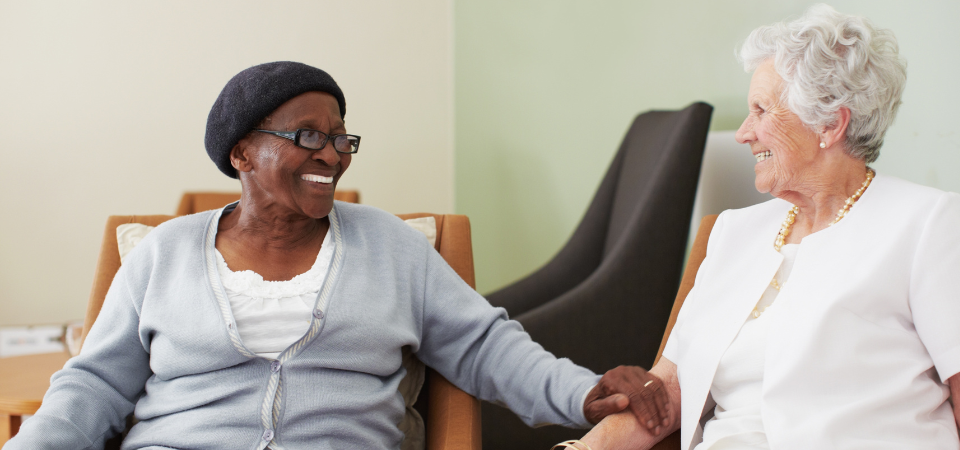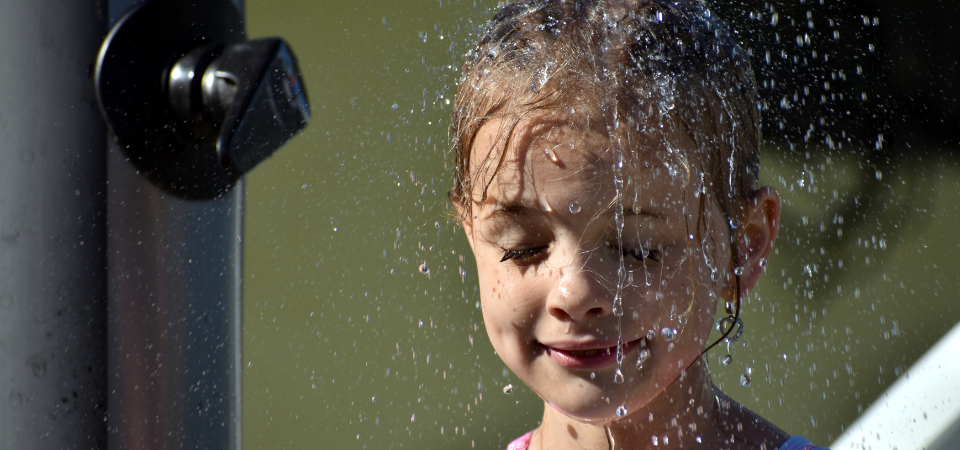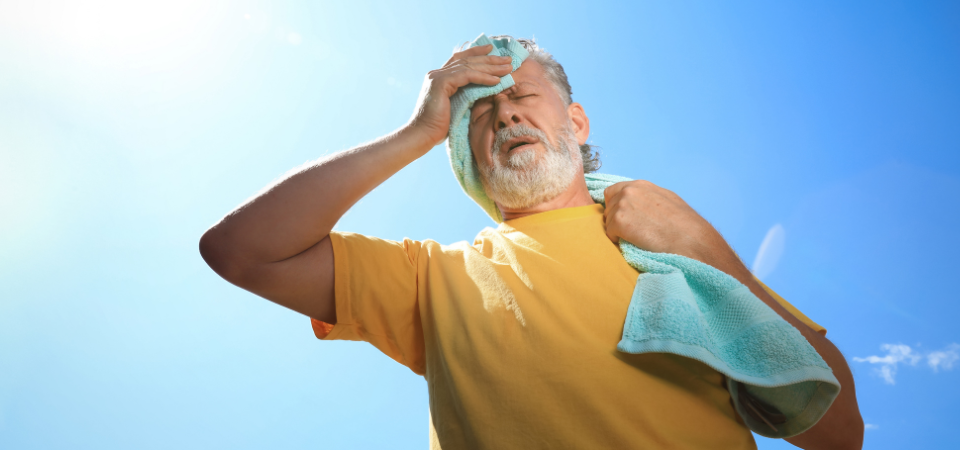Summer is Here: Help Keep People in Care Cool and Healthy
Although many people may be excited to see the temperatures rise, it's important to remember that more vulnerable people may need help to stay cool and healthy during the warmer months.
We wanted to help our staff, and those they care for, by sharing a few top tips on ways to beat the heat and enjoy the summer months in safety.
Remember to Stay Hydrated

People you care for: Guidance suggests aiming for at least 8 glasses daily. You can help those you care for hit this goal by topping up water glasses regularly. Alternatively, people might benefit from water bottles with timelines that ensure people drink at certain times throughout the day.
Carers: We know time can often slip away from you on your busy rounds, but don't let this distract you from keeping yourself hydrated during your shifts. Make time to drink water as it gets warmer as you could easily find yourself dehydrated on a long shift on a hot day.
Things to avoid to help you stay hydrated: Excessive caffeine and alcohol intake can contribute to dehydration. So, although you may feel you need a pick-me-up coffee on a long hot day, or fancy popping out for drinks after work to soak up some sun with a beer or wine, be mindful to supplement these choices with plenty of water.
Dress Appropriately

People you care for: Whilst you may not always have control over the wardrobes of the people you care for, helping them make better choices when it comes to dressing from warmer weather is easy. Give advice to wear light, loose, and breathable clothing in layers. This way they can easily add and remove layers as the temperatures rise or fall.
Carers: You may find yourself limited as to what you can wear on your shifts. To help you stay as cool as possible, wearing lighter layers under your uniform can help keep you cool. Brighter, lighter colours can also help reflect heat so avoiding black is a good start.
Things to consider to protect yourself from the sun: When outdoors, accessories such as a wide-brimmed hat and sunglasses will help shade your head and face from the sun. It's also crucial to apply sunscreen, at least SPF 30 whenever the sun is shining.
Stay Indoors During Peak Heat

People you care for: It might seem like a great idea to get people out and about when it's warm, but it's key to avoid the hottest parts of the day to help the more vulnerable people you care for remain cool and safe. Stay sun-safe and comfortable during the warmer weather by limiting outdoor activities to early morning or later afternoon.
Carers: Find cool places in the building you are working in and instead of going out to enjoy the sun find summer-related activities you and those you care for can do that keep you inside during the hotter parts of the day.
Things to do when avoiding the hotter parts of the day: Early morning walks before 10 am are a great way to enjoy the outdoors in the hotter months without the risk of overheating. Whilst inside, make sure air conditioning is on where possible and any window blinds or curtains are drawn in sunnier areas.
Cool Down Your Body

People you care for: Depending on the kind of care you are delivering, there are various ways you can help lower a person's body temperature. Advise people in your care to bathe using cooler water and suggest the use of cold compresses when they are feeling too hot and apply cold compresses to the neck, wrists, and ankles for the best effect.
Carers: You have the option to take cooler showers before and after your shifts, taking time to remove uniforms on breaks can also help you cool down whilst on shift.
Things to lower body temperature: There are a few ways you can help reduce body temperature which include:
Sipping cool liquids like iced water, juice, and iced tea
Eating foods like melons, cucumber, and citrus fruits
Certain herbs like fenugreek and fennel seeds are also known to lower body temperature.
Eat Light and Healthy

People you care for: If you are involved in preparing meals and snacks for the people in your care, then keep them cool at meal times by offering them a choice of light meals made up of lots of fruit and vegetables, and choose to eat lighter foods but more often.
Carers: To keep your energy levels up, ensure you have access to a variety of healthy regular snacks during your shifts. Eating large, fatty, or starchy foods can take more energy to digest. This can increase your body temperature and, on hotter days, will sap your energy making you feel sluggish.
Things to drink and eat during hotter days: Making simple salads of fruit or vegetables can be great for light healthy snacks, sandwiches, and picnic-style party food are also quick and easy to prepare. Also, homemade ice lollies and ice creams are easy to whip up and great fun to make.
Be Mindful of Exercise

People you care for: There's a lot of focus on keeping people in care active, but on hotter days, you should choose an appropriate time and place to exercise. Avoid being outdoors and active between 10 am - 4 pm, and be prepared with extra hydration when exercising during the warmer months.
Carers: Your job is active already, so when exercising outside of your working hours during the warmer months consider keeping your workouts light. Save that much-needed energy for your already physically demanding role, which is only sure to become more demanding as the temperatures increase.
Check on Vulnerable Individuals

People you care for: Regulating your own temperature is something you don't often need to think about. You know when you are hot or cold and act accordingly. Others, however, don't have the ability to recognise or verbalise when they are overheating. This means it's up to you to keep an eye on the people in your care including the elderly and young children, and ensure they are kept safe, healthy, and cool during warmer days.
Carers: You can keep an eye on the people in your care and ensure their health by knowing the signs of heat-related illnesses and how to react if anyone in your care needs help or assistance.
Symptoms of heat exhaustion and heat stroke are:
Heavy sweating
Weakness
Dizziness
Nausea
Confusion
If someone in your care shows signs of heat stroke, you must seek medical attention immediately.
We hope you have found these tips helpful and that we have given you the tools to help the people you work with and care for stay cool, comfortable, and healthy all summer long. Remember to enjoy the warm weather safely.
Posted on July 31, 2025 by Nurseplus
